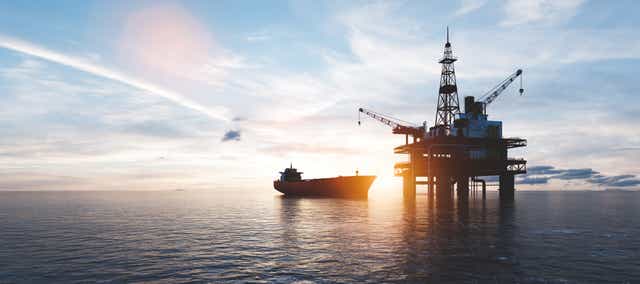Delta Air Lines, a prominent figure in the aviation industry, is facing the possibility of delays in receiving the Boeing 737 MAX 10 aircraft it has on order. The airline, which is publicly traded on the New York Stock Exchange with the ticker symbol DAL, has committed to purchasing 100 MAX 10 planes worth around $13.5 billion based on list prices, along with options for an additional 30 aircraft.
Initially, Delta had anticipated the arrival of these aircraft starting next year, but it now appears that deliveries could be postponed until as late as 2027 due to regulatory scrutiny and challenges at Boeing. During an interview with Bloomberg, CEO Ed Bastian acknowledged the potential for delays, stating, "We were already planning for a late 2025 arrival. I believe it will be another year or two beyond that. " Despite these setbacks, Delta appears confident in the safeguards included in its agreement with Boeing to mitigate any disruptions. Bastian recognized the various issues surrounding the 737 MAX that need attention, and the airline is actively involved in discussions with the manufacturer. In the interim, Delta has been exploring alternatives with Airbus, particularly the Airbus A321neo single-aisle aircraft. Bastian expressed his satisfaction with these Airbus planes, noting, "We're very happy with that aircraft." It seems that Delta is prepared to handle the challenges posed by potential delays in receiving their Boeing 737 MAX 10 aircraft and is proactively seeking solutions to ensure the seamless operation of its fleet. As a leading airline, Delta Air Lines has a long history of navigating challenges within the airline industry. From economic downturns to natural disasters to global pandemics, Delta has demonstrated resilience and adaptability to stay competitive and meet the needs of its customers. The current situation with the Boeing 737 MAX 10 is no different, presenting another hurdle for Delta to overcome. The delays in receiving the Boeing 737 MAX 10 aircraft are not unique to Delta; several airlines worldwide have faced similar challenges. The Boeing 737 MAX program has been marred by safety concerns following two fatal crashes in 2018 and 2019, leading to a global grounding of the aircraft. While Boeing has made significant updates to the aircraft and received clearance from regulatory authorities to resume flights, lingering reputational damage and regulatory scrutiny continue to impact the program. For Delta, the potential delays in receiving the Boeing 737 MAX 10 aircraft could have operational and financial implications. As with any airline, fleet planning is crucial to ensure efficient operations and meet customer demand. The delay in receiving new aircraft could disrupt Delta's long-term growth strategy and impact its ability to modernize its fleet and enhance its competitiveness in the market. However, Delta's proactive approach to exploring alternatives with Airbus demonstrates its commitment to finding solutions and mitigating the impact of potential delays. The Airbus A321neo has garnered positive reviews from airlines around the world for its fuel efficiency, range, and passenger comfort, making it a viable alternative for Delta to consider. By diversifying its fleet and leveraging different aircraft models, Delta can enhance its operational flexibility and resilience in the face of unforeseen challenges. Moreover, Delta's negotiations with Boeing to address the issues surrounding the 737 MAX program highlight the importance of strong partnerships and effective communication between airlines and aircraft manufacturers. Clear and transparent dialogue is essential to resolving issues, building trust, and ensuring the successful delivery of new aircraft. Delta's approach to managing the delays with Boeing demonstrates a collaborative mindset and a commitment to working together to find solutions. In conclusion, Delta Air Lines' handling of potential delays in receiving the Boeing 737 MAX 10 aircraft serves as a testament to its resilience, adaptability, and commitment to delivering a superior customer experience. By exploring alternatives, engaging in constructive discussions with Boeing, and taking proactive steps to mitigate disruptions, Delta is positioning itself for long-term success in a dynamic and challenging industry. As the aviation landscape continues to evolve, Delta's proactive and strategic approach will undoubtedly serve as a model for other airlines facing similar challenges.Delta CEO Anticipates Boeing 737 MAX 10 Deliveries Postponed to 2027, Says Bloomberg (NYSE:DAL)
.png) 3 months ago
97852
3 months ago
97852
Related
Adani Enterprises to Replace Wipro in Sensex, Expected Chang...
1 month ago
22868
Exxon Announces New Oil Discovery Offshore Angola - S&P Glob...
1 month ago
29446
Warning from U.S. Officials: Mortgage Companies Could Worsen...
1 month ago
30665
Shopify's Q1 Loss Leads to Decline in Shares, Predicts Slowe...
1 month ago
34878
Trending in United States of America
1. Chris Duarte
2. John Cena
3. Jon Landau
4. Lakers
5. Colombia
6. Djokovic
7. Ben Rice
10. NASCAR Chicago
Popular
Epic Games Prepares to Revolutionize Mobile Gaming with Plan...
4 months ago
136842
Discover What Your Mobile Cover Reveals About You
4 months ago
136773
Bloomberg: Nintendo Switch successor will be released in ear...
4 months ago
136705
Tower Semiconductor wants to build $8 billion chip factory i...
4 months ago
136684
Google Reinstates Indian Apps on Play Store After Government...
4 months ago
136642
Subscribe Newsletter
Fill out the form below to subscribe to our news
© Newstia 2024. All rights are reserved









 English (US)
English (US)